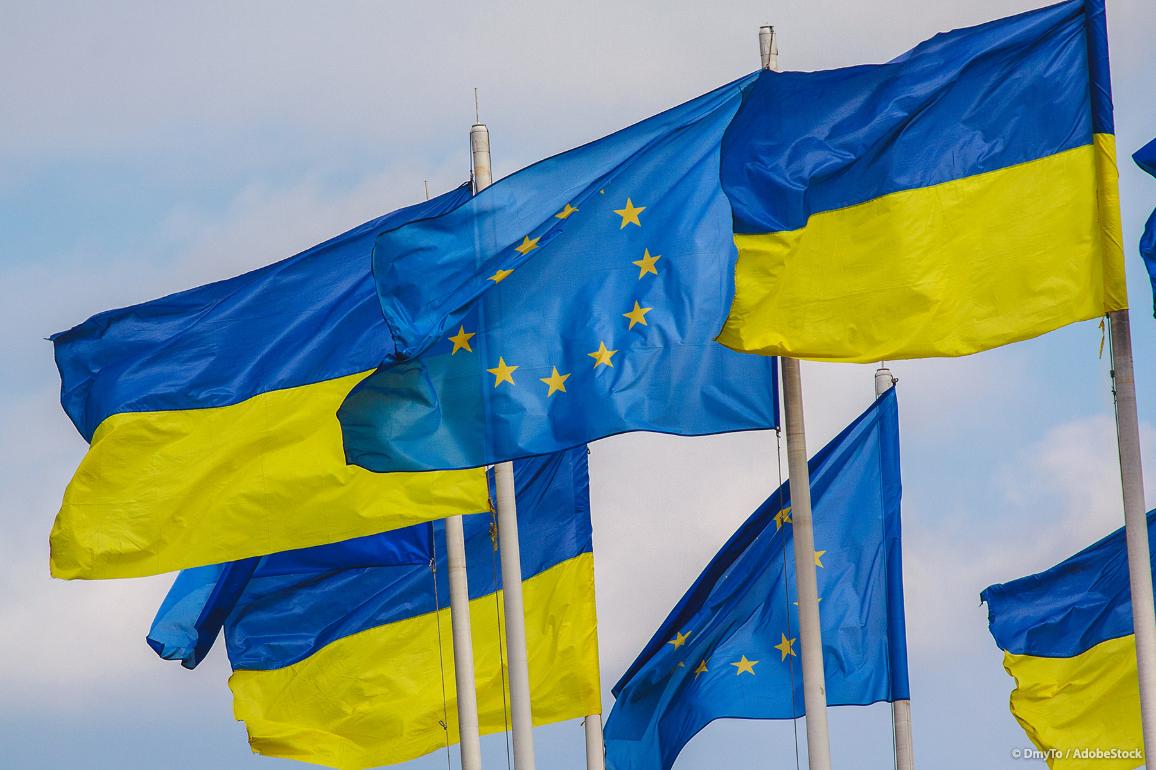

President Putin’s brutal onslaught against Ukraine changed Europe literally overnight. The unthinkable became possible, decades-old taboos were broken in a matter of days. From imposing the most severe EU sanctions to date on the aggressor, to supporting member states in providing military equipment to the victim, which is also unprecedented.
In Germany alone, policy changes have been nothing short of tectonic: weapons are sent to Ukraine, Nord Stream 2 gas pipeline halted, defence spending exceeding NATO’s 2 percent of GDP was announced, as well as a one-off 100 billion euro fund to modernise the Bundeswehr.
In an all-out war against Ukraine, a sovereign European country, without any provocation, Putin attacked the European security order. He unified the continent, made NATO more relevant than ever, and destroyed any space for complacency. Europe is by and large awake, helping Ukraine and speedily taking measures to be able to defend itself.
Europe, however, is what this war is all about, not only in terms of geography. Regardless of all the debates on NATO expansion, it was Europe’s soft power that inspired Ukraine and in turn got Putin worried to the point of occupying Crimea and Donbass. Euromaidan was a triumph of Europe’s values-based appeal. The protests were literally triggered by the decision against signing the Association Agreement with the EU and resulted with the ousting of Yanukovich, who then opted for closer ties to Russia.
It was a collective cry for what Europe represents, for the European narrative. That is why a crowd yearning for freedom, democracy, good governance, the rule of law and prosperity endured the cold, the threats and the snipers. The people of Ukraine have taken the European narrative very seriously. And a European democratic prosperous Ukraine, if it becomes a reality, may as well be an inspiration for its bigger neighbor and a danger to Putin’s oppressive regime.
Ukraine today fights for more than its mere survival. Letting Putin install a puppet government in Kyiv would provide for bare survival of the nation. But this is not an option, as Ukrainians heroically fight for their freedom and democracy, as well as the right to choose their own destiny. They want to be an equal member of the European family. When President Zelensky says that Ukrainians fight and die for Europe, he means it.
Acting upon Ukraine’s application for EU membership submitted on 28 February, the European Council already invited the Commission to give its opinion and underlined that Ukraine belongs to the European family. So far so good. The signal by way of granting Ukraine a candidate country status should be given most urgently.
But the Ukrainians are in for a major disappointment and disillusionment with Europe unless the EU quickly learns its lessons from the failure of enlargement process in the Western Balkans, a region promised a European future as back as 2003. While understanding Zelensky’s request for an accelerated membership, the pace of integration will inevitably depend on the pace of transformation of the Ukrainian society, once the war is over. The bigger question here is not so much the speed of the process, but whether an eventual EU membership is at all on offer.
Today, the supposedly merit-based process hardly rewards reformers; action against backsliding is lacking because of political considerations; in reality, there is no consensus among the member states on the end goal – membership. Accession is often kept hostage by individual vetoes unrelated to the criteria. In short, enlargement has become a political game of keeping up pretenses, lacking any credibility.
Take North Macedonia, the oldest candidate country (since 2005) in the region, as an example. A child born in 2001, when the process started, would have come of age in 2019, when the EU said talks would formally commence.
All this lost time was initially caused by the dispute with Greece over the name of the country. This seemingly intractable problem was finally resolved in 2018, with the Prespa agreement, widely praised as a model for the region and beyond, and a rare victory for diplomacy. EU leaders rejoiced and promised that membership talks would start. Well, they still haven’t. The political decision was finally made in 2020, but citizens of North Macedonia still haven’t even begun their long journey.
They are now blocked by neighbouring Bulgaria which claims that ethnic Macedonians are a result of “ethnic and linguistic engineering” that has taken place under Tito’s former Yugoslavia. Yes, you read that right.
In this watershed moment for the continent, the EU must think big again, act strategically and take enlargement seriously. If it wants to do justice to Ukrainians fighting and dying to be able to become equal members of the European family, if it wants to firmly anchor the countries in the Western Balkans on their European path and close the pockets of instability that can be fueled by Kremlin, if it wants to avoid counter-narratives and further disillusionment, if it wants to show Georgia and Moldova that enlargement can indeed be successful – then it must urgently create a credible, realistic and performance-based integration process, with timely incentives.